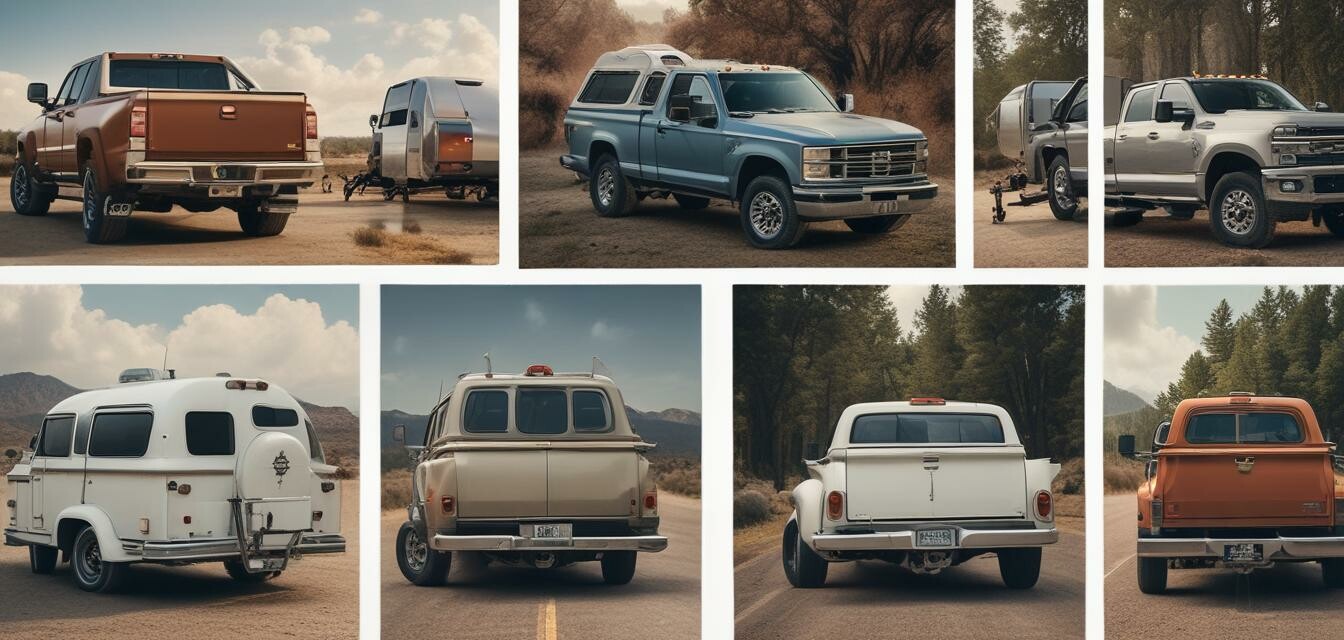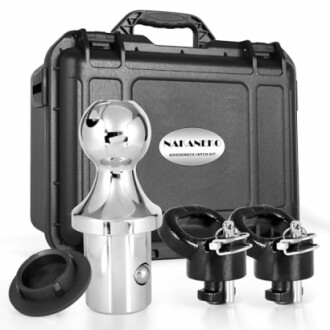
Understanding Different Types of Trailer Hitches
Key Takeaways
- There are several types of trailer hitches, each with unique features and applications.
- Choosing the right hitch depends on weight capacity, vehicle type, and trailer design.
- Proper installation and maintenance are crucial for safe towing.
When it comes to towing, understanding the different types of trailer hitches available is crucial for making an informed decision. With so many options on the market, choosing the right one for your needs can be daunting. This guide will simplify the process by outlining various trailer hitch types, their uses, and how to select the best option for your vehicle and load.
Types of Trailer Hitches
| Hitch Type | Description | Best For |
|---|---|---|
| Gooseneck Hitch | A hitch that mounts in the bed of a pickup truck, allowing for tighter turns and greater maneuverability. | Large trailers, like livestock and flatbed trailers. |
| Fifth-Wheel Hitch | Similar to a gooseneck but has a kingpin that connects to a coupler mounted in a pickup truck bed. | Fifth-wheel RVs and large travel trailers. |
| Bumper Pull Hitch | The most common type, mounted to the rear of the vehicle; utilizes a coupler at the end of the trailer. | Light to medium-sized trailers, including boats and utility trailers. |
| Weight Distribution Hitch | Distributes the weight of the load evenly to prevent trailer sway. | Heavy loads that may cause swaying, such as larger campers. |
| Receiver Hitch | A hitch with a square receiver opening for attaching different accessories like bike racks or cargo carriers. | All-around use for various attachments. |
Choosing the Right Trailer Hitch
Selecting the perfect trailer hitch involves considering several factors. Here are some points to keep in mind:
- Weight Capacity: Make sure to choose a hitch that can handle the weight of your trailer and load. This will ensure safety during towing.
- Vehicle Compatibility: Verify that the hitch is designed for your vehicle model. Some hitches may only fit specific makes and models.
- Trailer Type: Understand the type of trailer you plan to tow. Different designs require different hitch types.
- Hitch Class: Familiarize yourself with hitch classes based on weight ratings, which will help you narrow down your options.
Understanding Hitch Classes
| Hitch Class | Weight Capacity (lbs) | Typical Use |
|---|---|---|
| Class I | 2,000 | Small trailers |
| Class II | 3,500 | Utility and small boats |
| Class III | 6,000 | Medium trailers |
| Class IV | 10,000 | Large utility and RVs |
| Class V | 20,000+ | Heavy-duty trailers |
Featured Product: Gooseneck Hitch Kit
60618 Puck System Gooseneck Hitch Kit
This Gooseneck Hitch Kit features a standard receiver hitch with a 2-5/16" ball, suitable for hauling trailers with a combined weight of up to 30,000 lbs. A perfect fit for Ram 2500 trucks.
Learn MoreFAQs About Trailer Hitches
How do I know which trailer hitch I need?
Assess your towing needs based on the weight of your trailer, your vehicle's towing capacity, and the type of trailer you will be using.
Can I install a trailer hitch myself?
Yes, if you're familiar with automotive work. However, it's recommended to seek professional installation for safety and reliability.
How often should I inspect my trailer hitch?
It's advisable to inspect your trailer hitch regularly, especially before long trips, to ensure all components are secure and undamaged.
Conclusion
Understanding the different types of trailer hitches and their respective uses is essential for safe and effective towing. By considering your specific needs and following the guidelines provided, you can choose the right hitch that enhances your towing experience. For further information, check out our comprehensive guides on trailer hitches or explore our buying guides to assist in your adventure planning.

